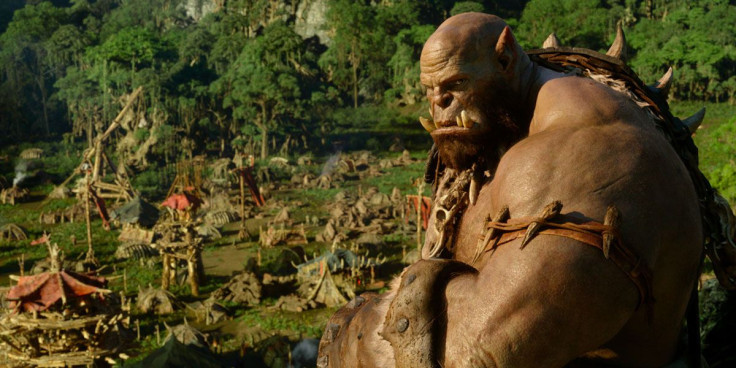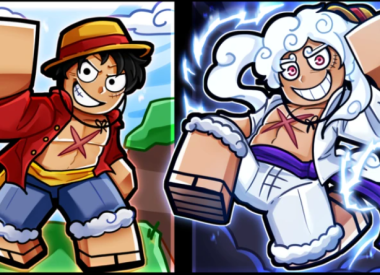Warcraft is bad, but it’s only the end that feels unforgivable. Despite all the kingly declarations, single combat challenges and spellcraft, Warcraft ends ragged, so obviously imagining itself part of a larger tapestry that it feels like the first part of one of those horrible, stretched two-parters we’ve been getting in recent years. But at least Harry Potter and The Hunger Games had some scope, whereas Warcraft is an oddly deflated fantasy epic – at once too stuffed and too bare. Were it not so boring it’d be natural to want Warcraft to be longer.
Warcraft opens in Draenor, moments before the warlock Gul’dan leads a raiding party through a death-powered portal into Azeroth, where peace between humans, gnomes and elves has reigned for years. But the plot of Warcraft isn’t really the war between orcs and the Alliance, but Gul’dan’s efforts to bring through the entire Orc Horde. The constructed gate (this time to be fueled by human sacrifice) becomes Warcraft’s Death Star, and what a limp Death Star it is.
Warcraft has far too many characters, but none of them rise to the level of protagonist. There’s no Frodo, no Luke, no Danny Ocean anchoring the ensemble. Characters who you might have imagined were the protagonist can die and be forgotten (but not in an interesting, Game of Thrones way). All are paved under the forward motion of the dull plot.
With no character given the room to become much of anything, you’re really clutching at bare moments to like or identify with any of them. Durotan (Toby Kebbel), the first Orc to attempt peace with the cardboard standee / human king Llane Wrynn (Dominic Cooper) seems chill. It’s fun that orcs think a good joke is hurling a rock at your friend’s head, but if Durotan is undercooked, the rest of the Horde are nearly nonexistent. Orgrim Doomhammer (Robert Kazinsky) gets his name said really loud at one point, so you know he’s important. Gul’dan (Daniel Wu) is suitably cackling, but slurping swirly white soul juice isn’t compelling for long.
The humans are even worse. Too much of the plot hinges on Medivh (Ben Foster) for his every action to be so obscured and seemingly unmotivated. Anduin Lothar (Travis Fimmel) has a roguish smile, I guess. Khadgar (Ben Schnetzer) waffles between canny and goony, yet never really accruing to anything.
But so far everyone mentioned is bland, but tolerable. The best an actor can hope for in Warcraft is to fade into the busy background. That’s better than being Paula Patton’s Garona, who is soft-spoken and unemotive in every moment where Warcraft insists she’s defiant and fearsome (Patton’s performance is not necessarily worse than the rest of the cast, just most at odd with what her character is meant to be to the plot). Warcraft feels like director Duncan Jones encouraged everyone to keep it low-key, adopting casual drawls and keeping emotions in check, perhaps in a failed effort to counterbalance and ground the more cartoonish aspects of the spectacle. Instead everyone seems dosed with cough syrup.
Part of the problem is that so much of the plot feels like wheel-spinning, giving the characters nothing to do but walk forward into the next set-piece. Various magical factions are consulted, allegiances turn back and forth and back again (the betrayal the entire plot of Warcraft turns on never gets a satisfactory explanation) and generals push units around on maps. Characters each have their petty, underdeveloped side-plots. It’s hard to pick the worst, but both Lothar’s relationship with his son and his inexplicable romance with Garona are astoundingly cursory.
The one area where Warcraft should soar — sheer spectacle — is also sadly lacking. Often movies shortchange character to get to battles, but Warcraft somehow manages to skimp on both. The action sequences are stuffed with shots that may be compelling individually, but are never allowed to contribute to a sense of scale. Even the final battle feels oddly small and pinched.
The entire world of Warcraft feels similarly pinched. Despite the immense overabundance of characters, Warcraft feels very small. It zips from location to location, but settles nowhere for long. The King and Queen address vast, silent crowds and every town is just another blip. There’s so little life here and it’s not for the typical reason — overabundant CGI — but because Warcraft seems to have cut away all the flavor.
Visually, Warcraft is likeable, but not spectacular. It’s stuffed with magic, some of which is very inventive. It’s fun when little runes and stuff pop up around spellcasters hands, even if the magic too often oversteps into vague lightning and swirling who-cares mist. The orcs are delightful individually (battles tend to blur into CG mobs), with motion capture really nailing human emotion, even as they gesticulate and swing about comically gigantic hands. There’s something downright charming about a movie so willing to be out-and-out fantasy silly. The best moment is a soaring shot pulled straight from an RTS, swinging over the map from burning town to burning town until we pause to watch dozens of little green orcs cause merry havoc. There’s no grit to Warcraft and that’s refreshing.
Here’s the odd thing: nothing about Warcraft is really atrocious enough to inspire disgust. It’d be possible to list boring things about it all day, but it doesn’t feel constitutionally corrupted to its core, like Batman v Superman: Dawn of Justice. It’s possible to imagine a longer version of Warcraft that’s actually more compelling. Instead we got a movie packed too tight to dance, with an unfortunate density of rote fact without the compensating awe and grandeur to make it truly fantastical.


















